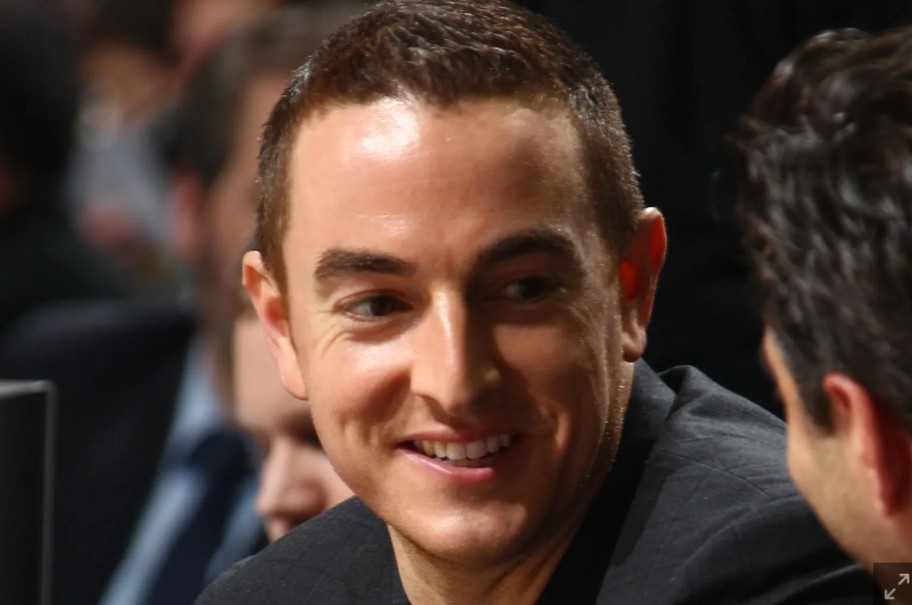Top 10 Richest People In Massachusetts (USA) Right Now
 |
| Top 10 Richest People In Massachusetts |
Massachusetts, officially the Commonwealth of Massachusetts, is the most populous state in the New England region of the United States. It borders on the Atlantic Ocean and Gulf of Maine to the east, Connecticut to the southwest and Rhode Island to the southeast, New Hampshire to the northeast, Vermont to the northwest, and New York to the west. The capital of Massachusetts is Boston, which is also the most populous city in New England. It is home to the Greater Boston metropolitan area, a region influential upon American history, academia, and industry.
The Forbes list of the world’s richest people is out for 2021 and there are many familiar local names on it.
Forbes says the entire list of world billionaires now stands at 2755 people. That’s 660 more than 2020.
List of top 10 richest people in Massachusetts
1. Abigail Johnson
2. Edward “Ned” Johnson III
3. Robert Kraft
4. Edward Johnson IV
5. Jim Davis
6. Elizabeth Johnson
7. Timothy Springer
8. Alan Trefler
9. Noubar Afeyan
10. Robert Langer
Who are the richest people in Massachusetts?
1. Abigail Johnson
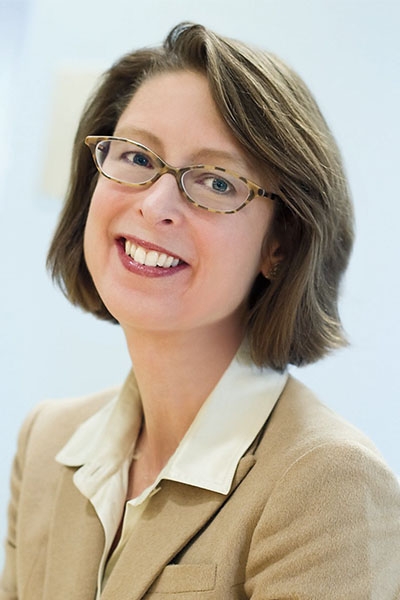 |
| Photo: CEO Today |
Abigail Johnson is the President and CEO of Fidelity Investments, an American investment firm, and its international sister concern, Fidelity International. The Boston-based company was founded by her grandfather, Edward C. Johnson II in 1946 to manage mutual funds. One of the few women who run a mutual fund mammoth today, she took over the reins of Fidelity Investments in challenging times and grew it into an empire. She holds an estimated 24.5% stake in the firm that has close to $2.7 trillion in the form of managed assets. As someone who has put her faith in cryptocurrencies, her firm launched a platform that allows investors to trade in ether and bitcoins. Known to her colleagues as ‘Abby’, she is a well-respected figure in the company’s Boston headquarters. Down to earth and media shy, she is rarely seen giving interviews to newspapers or media channels.
Early Career
In 1980, soon after finishing her high school, Abigail began working at Fidelity Investments in the customer relationship department attending phone calls. After graduating from Harvard Business School in 1988, she re-joined Fidelity as a lowly stock analyst in the Select Industrial Equipment Fund division.
In a few years, she became a Portfolio manager and immediately established herself, by consistently achieving positive results for Fidelity’s long client list. By 1994, she made it to the post of Associate Director.
A year later, her father divested a major chunk of his voting rights in Fidelity Investments, relinquishing it to the parent company FMR. This, experts believed, was an indication of his confidence in his daughter to succeed him as chairman in the future.
Presidency & Its Challenges
On May 2001, Abigail Johnson became President of the mutual fund division of Fidelity, making her the third most powerful individual in the $1.4 trillion company after her father and Robert L. Reynolds, company CEO.
Even though Fidelity was managing $900 billion and $100 billion worth of domestic and overseas mutual funds respectively at the time, it faced two challenges. One concern was the bearish market that had left many stock values battered, while the other challenge came from their competitor, Vanguard Group who had gained ground in the financial market.
To remedy the situation, she tweaked the company policy of small and incremental growths to include periodic mergers and acquisitions. As President of Fidelity, she encouraged aggressive buying and selling in the open market, without looking at market indices. Her orders to her portfolio managers was simple – be more aggressive with your acquisition strategies.
She took over the real estate division of Fidelity as President in May 2005.
Current Business Standing & Net Worth
Today, Abigail Johnson as President and CEO of Fidelity Investments is one of the few women around the world to be successfully managing a trillion-dollar mutual fund empire. Her family inheritance combined with her professional success made her the fourth richest businesswoman in America in 2017.
According to Forbes, her net worth is estimated to be approximately $14 billion as of October 2019.
Awards & Honours
She is the first woman to serve on the board of Financial Services Forum, which is a non-partisan American economic policy and financial services organization. FSF members include CEOs of the biggest and most diverse institutions of financial services, operating in America.
She was ranked 5th among the most powerful women in the world by Forbes magazine in 2018. In the magazine’s Billionaires 2019, she is ranked 71st.
2. Edward “Ned” Johnson III
Edward Crosby "Ned" Johnson III (born June 29, 1930) is an American billionaire investor and businessman who, along with daughter Abigail Johnson, owns and runs Fidelity Investments and Fidelity International.
Johnson attended prep school at Milton Academy before transferring to Tabor Academy and graduating with a Bachelor's degree from Harvard College in 1954. After a stint in the US Army, he became a research analyst at Fidelity Investments in 1957, a company founded by his father Edward C. Johnson II in 1949. He later became the portfolio manager for the Fidelity Trend Fund in 1960 and ran the famous Fidelity Magellan Fund from 1963 to 1977. He then became president of the company in 1972 and Chairman and CEO in 1977.
Johnson was the first to begin the practice of permitting check writing on money market funds. He was also the first to sell discount brokerage services to banks, insurance companies, and consumers. He supported and invested in automation of brokerage sales and operations.
In a November 21, 2016 memo to Fidelity employees, Johnson announced he would retire in December and turn over the Chairmanship to his daughter Abigail. Although he will no longer be a member of the Board of Directors at Fidelity, Johnson plans to “maintain office hours . . . and continue to consult periodically with Abby.”
Johnson is a fellow of the American Academy of Arts and Sciences, a trustee of the Beth Israel Hospital and the Boston Museum of Fine Arts and a member of the Boston Society of Security Analysts.
He has been given honorary doctorates by Boston University, Bentley College and the Hobart and William Smith Colleges. He is also an honorary fellow of London Business School.
With an estimated current net worth of around $8.4 billion, he is ranked by Forbes as the 57th richest person in America.
In 1965, the US–based Fidelity Foundation was founded by Edward C. Johnson III and his father. The Edward C. Johnson Fund, a $334 million charitable fund, contributes to institutions in the Boston area and beyond.
His wife is Elizabeth B. "Lillie" Johnson, a trustee of the Museum of Fine Arts and Winterthur Museum. They reside in Boston.
His daughter Abigail took over the role of CEO of Fidelity Investments and Chairman of Fidelity International in 2014. As of 2012, Abigail owned up to 24% of the shares in Fidelity, had a net worth of $10.3 billion and was ranked 29th on the Forbes 400 list of richest Americans.
His other daughter is Elizabeth L. Johnson. In 2012, it was estimated that Elizabeth had a net worth of roughly $2.5 billion.
His son, Edward Johnson IV, is president of family-owned Pembroke Real Estate. The firm manages 6.5 million square feet of office and residential real estate, including the Boston Seaport. In 2012, Edward's net worth was estimated at $2.5 billion.
Top 10 Richest People in North Carolina Right Now
3. Robert Kraft
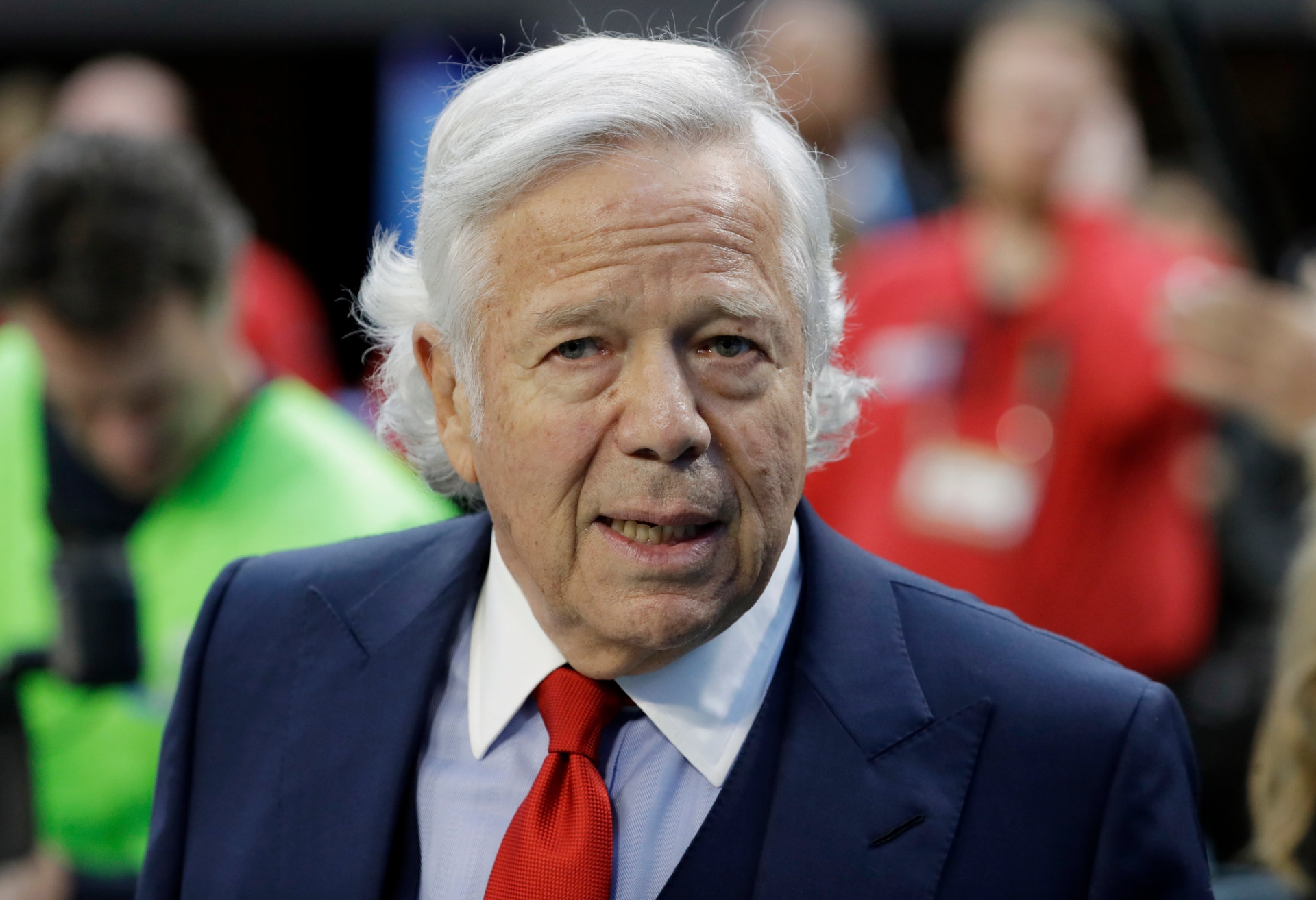 |
| Photo: The New York Times |
Robert Kraft is an American business magnate. He is the chairman and chief executive officer of ‘The Kraft Group.’ A huge football fan, he has several sports holdings, including for teams like National Football League's ‘New England Patriots’ and Major League Soccer's ‘New England Revolution.’ He made headlines in 1994 when he bought the ‘Patriots,’ who had won just 19 games the previous five seasons, making people wonder if he had somehow made a big mistake. But the ‘New England Patriots’ went on to become one of the most successful teams in NFL history, proving Robert Kraft’s critics wrong. Born into an orthodox Jewish family in Massachusetts, he was groomed to be a rabbi. However, fate had other plans for him. He went on to receive an MBA from ‘Harvard Business School’ and became the chairman of the ‘Newton Democratic City Committee’ at the age of 27. Intelligent and ambitious, Kraft began working with his father-in-law in the ‘Rand-Whitney Group’ before founding ‘International Forest Products.’ Thanks to his love for sports, he also purchased teams like ‘Boston Lobsters,’ ‘New England Patriots,’ and ‘New England Revolution.’ He eventually founded the ‘Kraft Group’ as a holding company to control his myriad business holdings. In addition, he is also a well-known philanthropist. He has donated over $100 million to a variety of philanthropic causes.
Career
Robert Kraft began working with the ‘Rand-Whitney Group,’ a Worcester-based packaging company run by his father-in-law. Hard working and intelligent, Kraft found much success as a professional. He was soon able to gain control over the company through a leveraged buyout in 1968.
He also had interest in politics and was elected chairman of the ‘Newton Democratic City Committee.’ He thought about running against Massachusetts's 3rd congressional district Representative Philip J. Philbin in 1970, but decided against it.
An enterprising individual, it did not take long for Robert Kraft to come up with his own business ‘International Forest Products,’ a company trading in physical paper commodities, in 1972. This venture proved to be a great success.
By the 1980s, he started investing the proceeds from his business in various ventures. He invested in ‘New England Television Corp,’ which gained control over WNAC-TV, and became director of the board in 1983. The station was then renamed ‘WNEV-TV’ and he was named president of the corporation in 1986.
An avid football fan, he purchased the professional American football team ‘New England Patriots’ in 1994 for $175 million. At the time of the purchase, the ‘Patriots’ had won just 19 games from their previous five seasons, and people, including his wife, questioned his decision to buy ‘Patriots.’
In 1998, he founded the ‘Kraft Group LLC’ as the holding company to own and operate his several business ventures in professional sports, manufacturing, and real estate development industries. It is based in Massachusetts.
Ever since he took over the ownership of the ‘Patriots,’ the team started performing well. The team’s coach Bill Belichick was hired in 2000, and under his guidance the team won three ‘Super Bowls’ in four years and finished the 2007 regular season with a perfect 16–0 record. In 2015, they won ‘Super Bowl XLIX,’ defeating the ‘Seattle Seahawks’ by a score of 28-24.
In 2017, Kraft was made the Honorary Chairman of the Board of Directors for the successful joint Canadian-Mexican-American bid for the 2026 ‘FIFA World Cup.’ The same year, ‘Blizzard Entertainment’ stated that Kraft bought ownership of ‘Boston Uprising,’ one of the first seven teams for the professional e-sports ‘Overwatch League.’
4. Edward Johnson IV
• Edward Johnson IV is the grandson of Edward Johnson II, who founded Fidelity Investments in 1946.
• He is the brother of current Fidelity CEO and Chairman Abigail Johnson.
• Johnson is the president of Pembroke Real Estate, which is owned by Fidelity's parent company FMR.
• He owns a 5.56% stake in FMR, according to company documents filed with the Utah Department of Insurance in 2000.
• The Johnson family is a major donor to nonprofits in Boston and has given to Harvard, Historic New England and the Institute of Contemporary Art.
5. Jim Davis
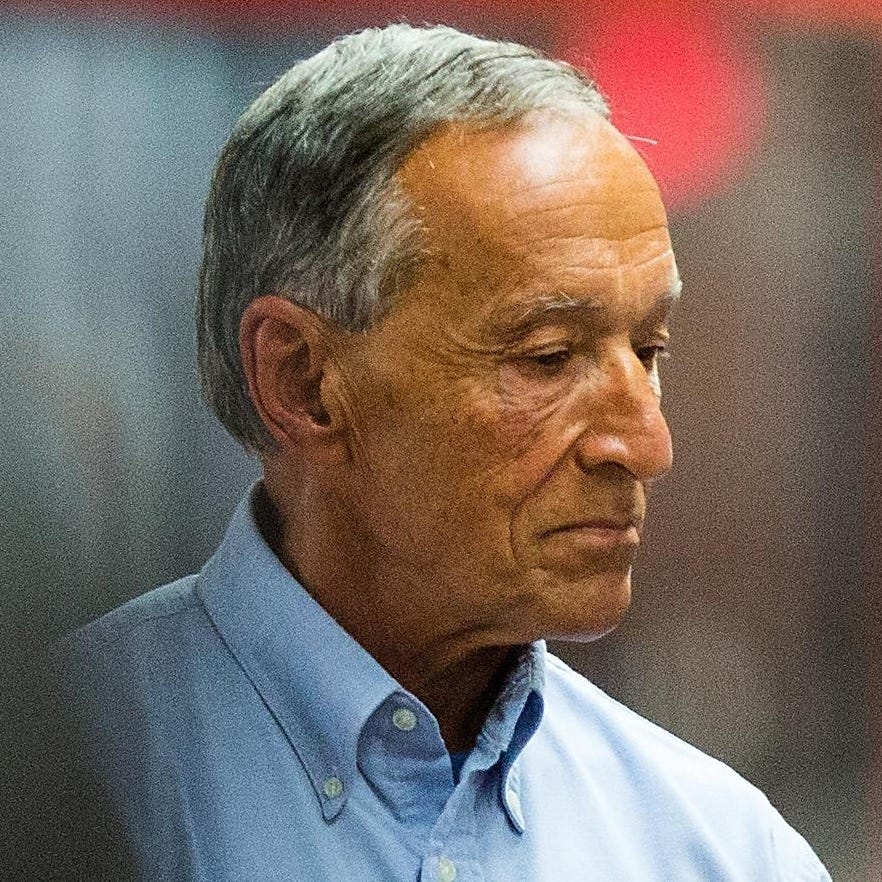 |
| Photo: Forbes |
James S. Davis (born 1943) is an American billionaire businessman, the owner and chairman of New Balance, and an early investor in Major League Lacrosse.
James S. Davis was born in 1943, the son of Greek immigrants. He attended the Worcester Academy, and he received a bachelor's degree in biology and chemistry from Middlebury College in 1966. While in college, he played college football.
Davis started his career as a sales engineer at the LFE Corporation in Waltham, Massachusetts, and as marketing manager for the Applied Geodata Systems Division of Techven Associates of Cambridge, Massachusetts. In 1972, he bought New Balance, then only a 6-employee firm in Boston, and turned it into a 4,000-employee global corporation with revenues averaging around $2.5 billion every year. He has been a Board member of the Sporting Goods Manufacturers Association, the International Athletic Footwear & Apparel Manufacturers Association, and the Two/Ten Foundation. He also sits on the Board of Directors of the Citizen's Bank in Providence, Rhode Island.
Davis has donated $500,000 to Mitt Romney's Super PAC, Restore Our Future. He has donated $5 million to the University of Maine. He is the recipient of an Honorary Doctorate from his alma mater, Middlebury College. A library on its campus has also been named for him. He formerly sat on its Board of Trustees, on the Worcester Academy's, and on Newbury College's. He sits on the Board of Trustees of the Sports Museum of New England and formerly Boston Children's Museum.
As of 2017, Davis is the 324th richest person in the world, and the 94th richest in the United States, with an estimated wealth of US$5.1 billion.
6. Elizabeth Johnson
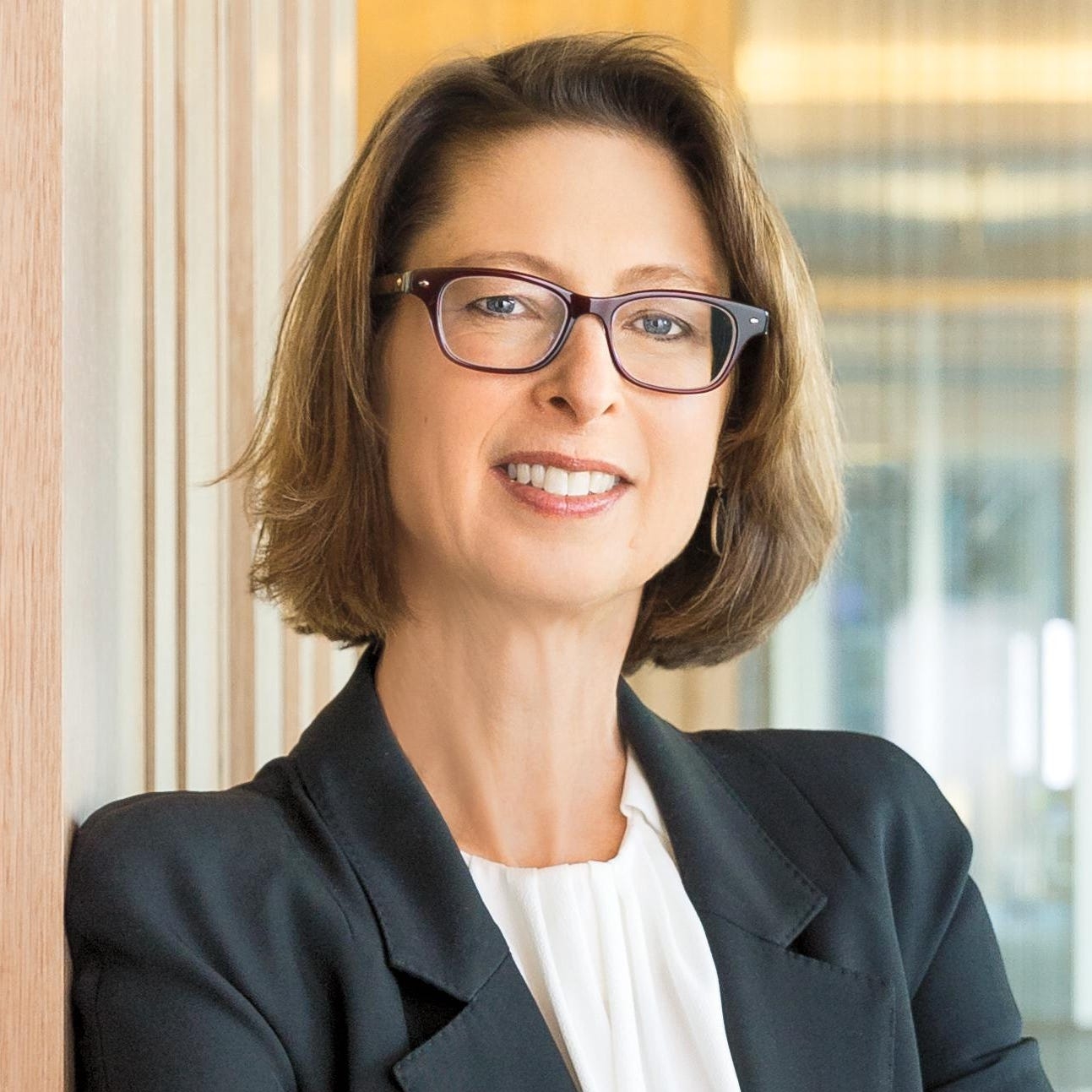 |
| Photo: Forbes |
Elizabeth Johnson is the youngest daughter of Edward Johnson III, the former chairman of Fidelity Investments.
Most of her fortune is derived from her 5.6% stake in Fidelity Management & Research Company, the parent company of Fidelity Investments. In addition, Elizabeth Johnson is the founder and president of Louisburg Farm, an equestrian facility in Florida.
Elizabeth Johnson earned her degree at Franklin Pierce College. She sat on the Society of Arts and Crafts resource council, a Boston organization committed to the American craft movement.
She got married in 2003.
Elizabeth Johnson and Robert Clayton Ketterson Jr. married in 2003 but kept her name. Rob Ketterson received his computer engineering and marketing degree from the University of Arizona and his M.B.A. from MIT Sloan. He worked at Fidelity Ventures and is a founding partner of Volition Capital in Boston.
The story behind the brand.
In 1943, Edward C. Johnson II took over management of the Fidelity Fund and created a new company, Fidelity Management and Research. His son, Edward Johnson III. joined the company as an analyst in 1957. A few years later, the company acquired its first computer and started to rely on technology to serve its customers.
His son Johnson III grew the company fast.
In 1977, Edward Johnson III became the chairman and the CEO of Fidelity, and the company started to offer 403(B) plans and 401 (K). He also enabled customers to buy and sell stocks using online tools.
Abigail, Johnson III's daughter, became the new CEO.
In addition, his daughter Abigail (Abby) joined the company as an equity analyst in 1988, and he helped her become the company CEO in 2014. In 2018, Abigail made it possible for institutional investors to trade cryptocurrencies.
Today, the Boston-based business has about $3.8 trillion in assets under management.
The family gives a lot of money away.
The Johnsons family has given smaller donations to various organizations. They have also helped sponsor several foundations such as Brookfield Arts Foundation, Barth Syndrome Foundation, and Harvard Medical School. However, the largest donation was $3 million to Bermuda Underwater Exploration Institute.
Top 10 Richest People in Virginia & How They Got their Wealth
7. Timothy Springer
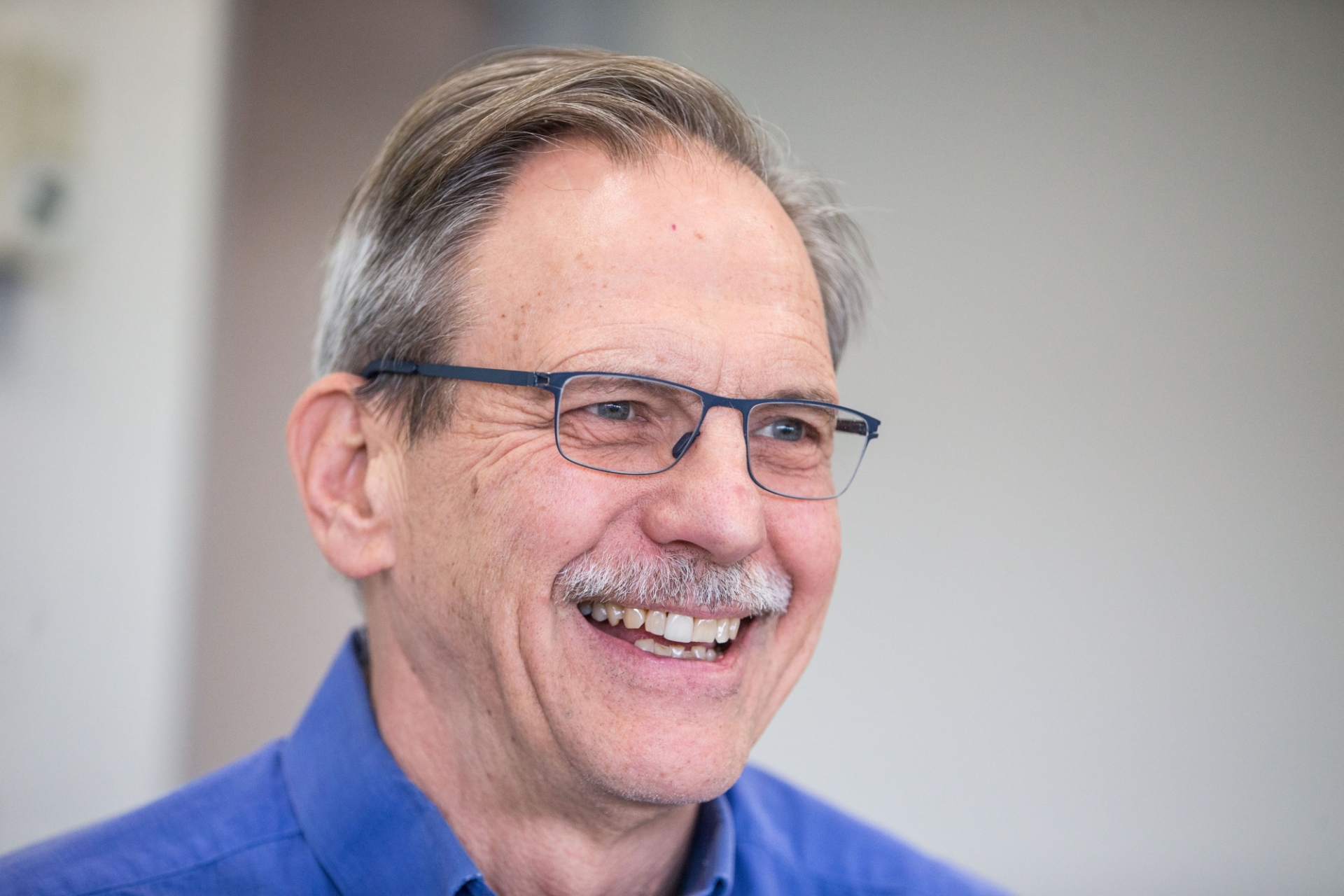 |
| Photo: Bloomberg |
Timothy "Tim" A. Springer, Ph.D. is an immunologist and Latham Family Professor at Harvard Medical School. Springer is best known for his pioneering work in discovering the first integrins and intercellular adhesion molecules (ICAMs) and elucidating how these cell adhesion molecules function in the immune system. His innovative use of monoclonal antibodies in his research paved the way for the development of therapeutic antibodies, known as selective adhesion molecule inhibitors, to treat autoimmune diseases. In recent years, Springer's research interest has expanded to include malaria, transforming growth factor beta (TGF-β) signaling molecules, and von Willebrand factor.
Education and training
Springer attended the University of California, Berkeley, where he majored in biochemistry. After graduating Phi Beta Kappa with Distinction and the Departmental Citation, he went on to do his Ph.D. in the lab of Jack Strominger at Harvard University. Following his graduate work, Springer received his postdoctoral training under the guidance of César Milstein at the University of Cambridge.
Research focus
His lab elucidated different steps in the homing process of lymphocytes with a special focus on the integrin LFA-1. His research encompasses the cell adhesion molecules and chemotactic signals involved in lymphocyte migration in health and disease.
Business career
When Moderna Therapeutics launched its IPO in December 2018, Springer became the company's fourth-largest shareholder and made $400 million, after investing $5 million in the startup early on. Earlier, he had made around $100 million on his first venture LeukoSite, which in 1999 had been bought by Millennium Pharmaceuticals. Springer is also a founder of biotechnology companies Morphic Therapeutic and Scholar Rock. He is also a main investor in Selecta Biosciences. During the coronavirus pandemic crisis, Springer became a billionaire boosting his net worth to more than $1 billion after shares of biotech surge. He has a stake in Moderna Inc, the U.S biotech firm which developed a vaccine for the SARS-CoV-2 virus.
In 2017, Springer co-founded the Institute for Protein Innovation (IPI), a nonprofit organization. Springer donated a $10 million foundational grant to the IPI.
8. Alan Trefler
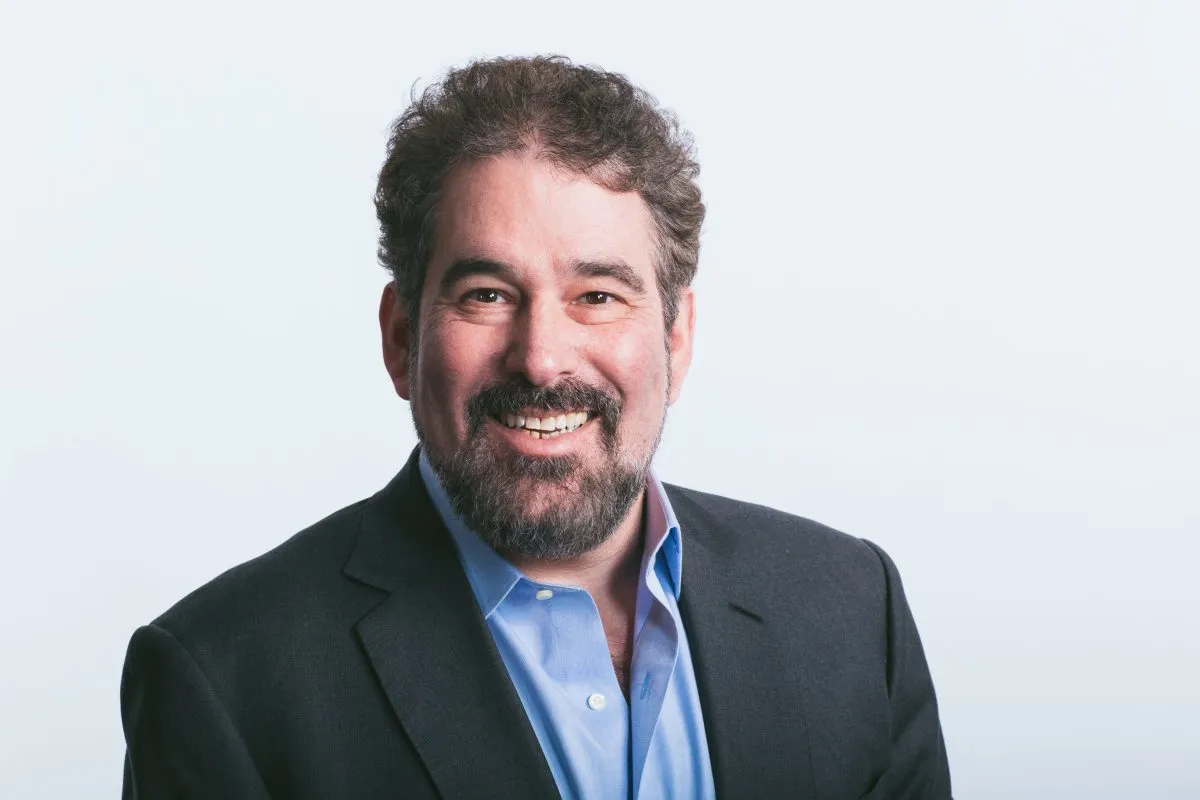 |
| Photo: IdeaMensch |
Alan N. Trefler (born March 10, 1956) is an American billionaire businessman and chess master best known as the chief executive officer (CEO) of Pegasystems, a multinational software company he founded in 1983. Prior to Pegasystems, in 1975 Trefler tied for first place in the World Open Chess Championship with grandmaster Pal Benko, afterwards working as a software engineer for Casher Associates and TMI Systems. Founding Pegasystems at the age of 27, he took the company Public company in 1996, with Trefler remaining clerk and president until 1999 and afterwards becoming CEO. With a 52 percent ownership stake in Pegasystems, his net worth surpassed $1 billion in 2013 and in March 2017 he appeared on the Forbes Billionaire's List for the first time. In 2014 he authored the book Build for Change, which addresses changing consumer markets. Involved in philanthropy, in 1997 he established the Trefler Foundation.
Software engineering
Although he attained the level of chess master and considered going professional, after Trefler graduated from Dartmouth he moved into software engineering instead. In the early 1980s he developed computer systems that could play chess, later applying the same business techniques to teaching computers how to process business rules. Between 1978 and 1980 Trefler was a senior project manager for Casher Associates Inc., a business process management company in Chestnut Hill, Massachusetts. He then worked at TMI Systems, where he led the development of their funds transfer product from 1980 to 1983.
Founder of Pegasystems
He founded Pegasystems in April 1983, taking on the roles of CEO and chairman at the age of 27. Expressing frustration with the "primitive" computer systems available for companies such as banks and insurance companies, he states that "when I started Pega, it was with the vision that we could create a set of metaphors –an intermediate visual language that would enable business people to more directly instruct the machine... [and] get the computer to really understand how business people wanted things to work.... And it turns out to be a fairly hard problem to solve." Basing the company in Cambridge, Massachusetts with Citibank as his first client, during the company's early years Trefler focused on providing case management for companies such as American Express.
The company went public in 1996 on NASDAQ. Inventing a number of patents for use in Pegasystems' software architecture, in 1998 Trefler was granted a United States patent for Pegasystems' distinctive rules-based architecture, which provides the framework for Pegasystems' business process management (BPM) solutions. Trefler remained clerk of Pegasystems Inc. until June 1999, and president until October 1999. He remained CEO and chairman of the company's board of directors.
Recent work at Pegasystems
In 2009 Trefler won the Stevie Award for Computer Software CEO of the Year at the American Business Awards. In March 2010, Pegasystems acquired Chordiant for around $161.5 million, which gave Pegasystems access to new markets such as telecommunications and healthcare. The Massachusetts Technology Leadership Council named him their Public Company CEO of the Year in 2011. With a 52 percent ownership stake in Pegasystems, his net worth surpassed $1 billion on November 25, 2013. His Pegasystems salary was $751,526 in 2014. That year, Business Insider ranked him the 8th lowest paid CEO in the tech industry.
In 2014 he authored and published Build for Change, a book focused on the management of customers and business processes. A Forbes contributor related that the book made "a convincing argument" that companies needed to prepare for changes in customer behavior, or face negative repercussions.
Pegasystems had 3,000 employees, 30 offices, and "more than half a billion dollars in revenue" by early 2015. In 2015, courts ruled in Trefler's and Pegasystems' favor in a copyright infringement suit filed by YYZ, a company the press described as a patent troll. Trefler has been recognized by the Babson College Academy of Distinguished Entrepreneurs, and he speaks publicly on business and software topics at various events and conferences. Among other publications, he has appeared in Barron's, the BBC, Forbes, Fortune, The New York Times, The Wall Street Journal, Reuters, and Bloomberg Television. Trefler made the Forbes Billionaire's List in March 2017.
Top 10 Richest People In California (USA) Right Now
9. Noubar Afeyan
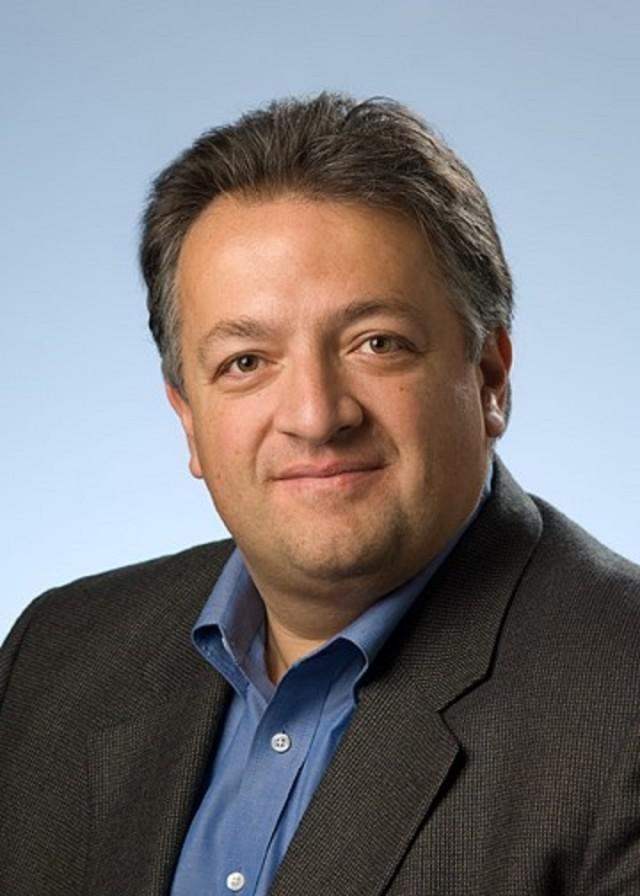 |
| Photo: Forbes |
Noubar Afeyan has dedicated his career to improving the human condition by systematically creating science-based innovations that serve as the foundation for startup companies. At Flagship Pioneering, which he founded in 2000, Noubar has created an enterprise where entrepreneurially minded scientists invent seemingly unreasonable solutions to challenges facing human health and sustainability. They begin by asking “What if?” and iterate toward the unexpected answer “It turns out,” resulting in the creation of first-in-category companies with significant impact. Flagship has fostered the development of more than 100 scientific ventures resulting in over $140 billion in aggregate value, thousands of patents and patent applications, and more than 50 drugs in clinical development.
During his career as inventor, entrepreneur, and CEO, Noubar has cofounded and helped build over 50 life science and technology startups. Prior to founding Flagship Pioneering, Noubar was the founder and CEO of PerSeptive Biosystems, a leader in bio-instrumentation that grew to $100 million in annual revenues. After PerSeptive’s acquisition by Perkin Elmer/Applera Corporation in 1998, he became senior vice president and chief business officer of Applera, where he initiated and oversaw the creation of Celera Genomics.
He is the co-founder and chairman of the board of Moderna (NASDAQ: MRNA), the pioneering messenger RNA vaccine company addressing the global COVID-19 pandemic, Omega Therapeutics (NASDAQ: OMGA), Generate Biomedicines, Tessera Therapeutics, and Laronde. He is also co-founder and board member of Rubius Therapeutics (NASDAQ: RUBY) and YourBio Health. Previously, he was a member of the founding team, director, and investor in highly successful ventures including Chemgenics Pharmaceuticals (acquired by Millenium Pharmaceuticals), Color Kinetics (acquired by Philips), Adnexus Therapeutics (acquired by Bristol-Myers Squibb), and Affinnova (acquired by AC Nielsen).
Noubar entered biotechnology during its emergence as an academic field and industry, completing his doctoral work in biochemical engineering at MIT in 1987. He has written numerous scientific publications and is the inventor of over 100 patents. He was a senior lecturer at MIT’s Sloan School of Management from 2000 to 2016, and a lecturer at Harvard Business School until 2020. He teaches and speaks around the world on topics ranging from entrepreneurship, innovation, and economic development to biological engineering, new medicines, and renewable energy.
Noubar’s commitment to improving the human condition through science and business goes hand in hand with social investments and a global humanitarian initiative. Together with his partners, he has launched philanthropic projects including the Aurora Humanitarian Initiative, FAST Foundation, and the UWC Dilijan School. Noubar is a member of the Corporation of MIT (the Institute’s governing body) and a member of the board of trustees for the Boston Symphony Orchestra.
Noubar was born in Beirut to Armenian parents in 1962, did his undergraduate work at McGill University in Montreal, and completed his Ph.D. in biochemical engineering at MIT in 1987. A passionate advocate of the contributions of immigrants to economic and scientific progress, Noubar received the Golden Door Award in 2017 from the International Institute of New England, in honor of his outstanding contributions to American society as a U.S citizen of foreign birth. He was also awarded a Great Immigrant honor from the Carnegie Corporation in 2016, received a Technology Pioneer award from the World Economic Forum in 2012, and was presented with the Ellis Island Medal of Honor in 2008. In 2022, Noubar was elected to the National Academy of Engineering.
10. Robert Langer
 |
| Photo: Wikipedia |
Robert Samuel Langer, Jr. FREng (born August 29, 1948) is an American chemical engineer, scientist, entrepreneur, inventor and one of the twelve Institute Professors at the Massachusetts Institute of Technology.
He was formerly the Germeshausen Professor of Chemical and Biomedical Engineering and maintains activity in the Department of Chemical Engineering and the Department of Biological Engineering at MIT. He is also a faculty member of the Harvard–MIT Program in Health Sciences and Technology and the Koch Institute for Integrative Cancer Research.
Langer holds over 1,400 granted or pending patents. He is one of the world's most highly cited researchers and his h-index is now 299 with currently over 363,000 citations. He is a widely recognized and cited researcher in biotechnology, especially in the fields of drug delivery systems and tissue engineering.
He is the most cited engineer in history and 4th most cited individual in any field, having authored over 1,500 scientific papers, and is also a prolific entrepreneur, having participated in the founding of over 40 biotechnology companies including Moderna.
Langer's research laboratory at MIT is the largest biomedical engineering lab in the world; maintaining over $10 million in annual grants and over 100 researchers. He has been awarded numerous leading prizes in recognition of his work.


